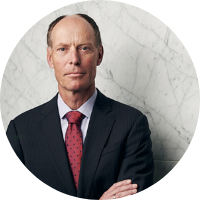A message from Professor Paul Kofman, Dean of the Faculty of Business and Economics.
Dear Students,
I hope you and your families are safe and well. This is a difficult time and I appreciate you have many concerns beyond study, with your health, rent and part-time employment and feelings of isolation. It’s normal to feel a range of emotions in times like these, but it’s important to look after your well-being. In times of heightened anxiety, here’s a TED talk that I hope can assist to refocus your thoughts and actions.
This week, I want to take a different approach. During this unprecedented moment we find ourselves in, I have found myself re-evaluating our business and economics disciplines in a new light. So let’s consider what you study in the context of a situation like COVID-19. To start that conversation, consider the disruption to supply chains.
We all saw the media reporting on fights over toilet paper, hand sanitizer, pasta and dairy products leading to empty aisles in the supermarket where pasta once sat. The vulnerability of supply chains was one of the most visible initial impacts of this situation. Our Faculty’s Associate Professor William Ho, wrote a recent article about the importance of strong supply chains.
While we all value living in such a globalised world, our reliance on manufacturing factories concentrated in a single overseas country clearly is a high-risk model. William cites examples from Apple and Hyundai suffering shortages due to suppliers in China being temporarily shut down. However, William rightly points out that supply chain risk is multifaceted. It can range from macro risks like COVID-19, to manufacturing risks like poor working conditions and financial risks, including currency changes.
William suggests that careful preparation and mitigation is the key to cutting supply chain risk. Printer and ink giant HP is an example of a multinational company ‘doing well’ in the current crisis because it planned for all aspects of manufacturing to be carried out in several countries. Should one factory shut down, it doesn’t affect the output of the others. I’ll let you read William’s research paper to learn more.
This is undeniably a very difficult time for all, but it also has the potential to bring about positive change. Each week, in the context of your classes and the news around you, I hope you will challenge the status quo of your favourite disciplines and question if there are ways we can do it better in a post-COVID world.
Stay safe over the Easter break.
Best wishes,
Paul
